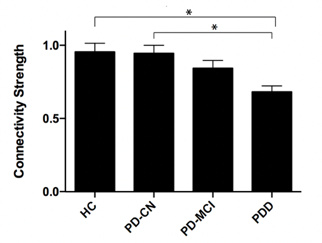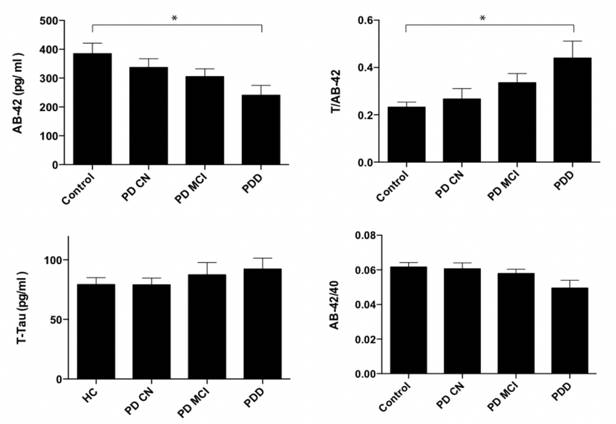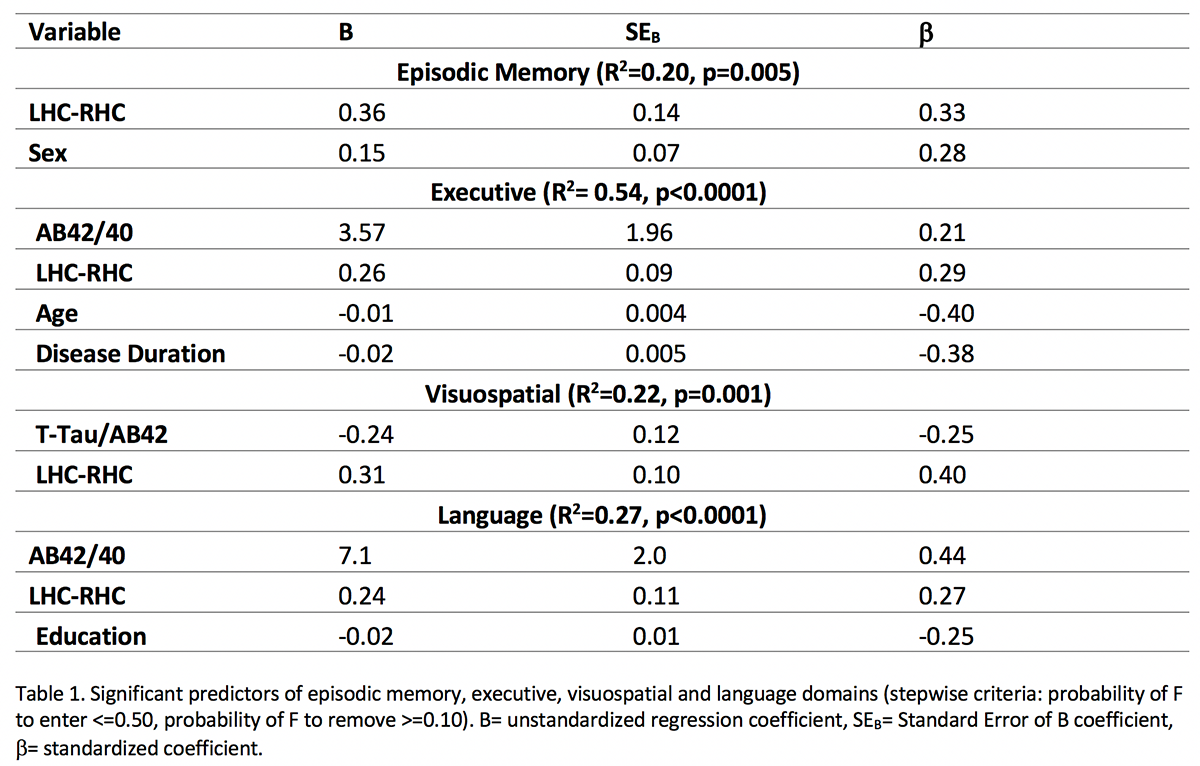Session Information
Date: Tuesday, September 24, 2019
Session Title: Parkinsonisms and Parkinson-Plus
Session Time: 1:45pm-3:15pm
Location: Agora 3 West, Level 3
Objective: To investigate whether between-hippocampal connectivity and CSF proteins can predict domain-specific cognitive impairment in Parkinson’s disease (PD).
Background: Cognitive dysfunction is a common and devastating symptom for people with PD, with impairments ranging from mild to dementia. Further, impairments are found in multiple cognitive domains, including episodic memory, executive, visuospatial, and language. We sought to characterize the alterations in brain network connectivity and CSF proteins associated with these impairments.
Method: We studied 51 PD patients (23 cognitively normal (CN), 18 with mild cognitive impairment (MCI), 10 with dementia (PDD)) and 21 age-, education-, and sex-matched controls (HC), who completed comprehensive neuropsychological and motor testing, lumbar puncture and resting state fMRI. We determined between-hippocampal connectivity from the resting state time-series in bilateral hippocampal regions-of-interest.
Results: Between-hippocampal connectivity significantly differed across PD subgroups. Specifically, connectivity was reduced in the order of HC = PD-CN > PD-MCI > PDD [figure 1]. Further, AB42 was significantly reduced and T-Tau/AB42 was significantly increased across PD subgroups [figure 2]. We then performed a stepwise multiple regression that included demographic (age, sex, years of education) and clinical (disease duration, hippocampal connectivity, CSF-proteins) metrics. We found that reduced between-hippocampal connectivity remained a significant predictor of all cognitive domains, while AB42/40 also predicted executive and language impairment, and T-Tau/AB42 also predicted visuospatial impairment [table 1].
Conclusion: Lewy pathology, the pathological hallmark of PD, reaches the hippocampi by Braak stage 3 or 4 [1]. Our findings suggest that bilateral hippocampal communication is affected and might in turn influence cognitive ability. With more severe PD-related cognitive impairment, our data demonstrates reductions in hippocampal connectivity along with CSF AB42. While reduced between-hippocampal connectivity was associated with impairment in all domains, abnormal AB42/40 and T-Tau/AB42 were associated with domain specific impairments. This study furthers our understanding of the distinct biological influences on domain-specific cognitive impairments in PD.
References: [1] Braak et al. (2003). Staging of brain pathology related to sporadic Parkinson’s disease. Neurobiology of Aging, 24, pp.197-211.
To cite this abstract in AMA style:
P. Zarifkar, J. Kim, C. La, P. Borghammer, K. Poston. Predicting domain specific cognitive impairment in Parkinson’s disease [abstract]. Mov Disord. 2019; 34 (suppl 2). https://www.mdsabstracts.org/abstract/predicting-domain-specific-cognitive-impairment-in-parkinsons-disease/. Accessed January 7, 2026.« Back to 2019 International Congress
MDS Abstracts - https://www.mdsabstracts.org/abstract/predicting-domain-specific-cognitive-impairment-in-parkinsons-disease/



